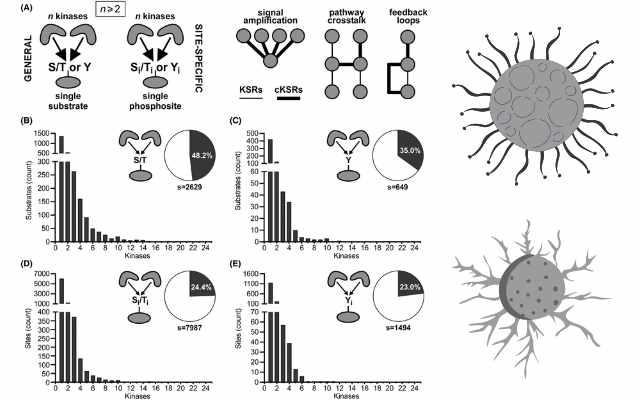A new way to study molecular drivers of cancer

Cancer is a complex disease caused by a combination of genetic, environmental, and lifestyle factors. Despite significant advances in cancer research, the molecular mechanisms underlying the development and progression of cancer are not yet fully understood. However, recent developments in molecular biology and data analysis have opened up new avenues for studying the molecular drivers of cancer.
Its a range of molecular drivers, and finding effective treatments can be challenging. However, recent advances in technology have made it possible to study cancer at a molecular level, providing new insights into the underlying causes of the disease. In this article, we’ll explore a new way to study the molecular drivers of cancer and how it could change the way we approach cancer research and treatment.
One of the most promising approaches to studying the molecular drivers of cancer is the use of large-scale genomic and transcriptomic data. Genomic data refers to the genetic information of an organism, while transcriptomic data refers to the expression levels of genes. By analyzing these data sets, researchers can identify the genetic and epigenetic alterations that drive cancer development and progression.
However, analyzing large-scale genomic and transcriptomic data sets is a complex and challenging task that requires sophisticated computational methods. To address this challenge, researchers are developing new computational tools and methods that can analyze these data sets more efficiently and accurately.
One such tool is machine learning, which is a type of artificial intelligence that can learn from large data sets and make predictions based on patterns it finds in the data. Machine learning algorithms can be trained to identify the genetic and epigenetic alterations that are most strongly associated with cancer development and progression.
Another promising approach is the use of single-cell sequencing technologies, which allow researchers to analyze the genetic and epigenetic profiles of individual cells. This approach has the potential to reveal the molecular heterogeneity of cancer, which is the diversity of cell types and genetic alterations within a tumor.
Finally, researchers are also exploring the use of functional genomics approaches, such as CRISPR-Cas9 gene editing, to study the function of individual genes and their role in cancer development and progression.
The New Technique:
Scientists at the Broad Institute of MIT and Harvard have developed a new technique called “cell-painting proteomics” that allows them to study the molecular drivers of cancer in a highly detailed and comprehensive way. The technique involves labeling the different components of a cancer cell with fluorescent dyes and then analyzing the resulting patterns of fluorescence using a specialized microscope and computer software.
The team used this technique to study the molecular drivers of breast cancer, focusing on a specific subtype known as “triple-negative breast cancer.” This subtype is particularly aggressive and difficult to treat, and understanding its molecular drivers is a critical step toward developing more effective treatments.
Results:
The researchers identified several key molecular drivers of triple-negative breast cancer, including two proteins called FAK and SRC. These proteins play important roles in cell signaling and are often overactive in cancer cells, leading to uncontrolled growth and spread.
In addition to identifying these key molecular drivers, the researchers were also able to study how different treatments affect the activity of these proteins. They found that a combination of two drugs – dasatinib and defactinib – was highly effective at blocking the activity of FAK and SRC in triple-negative breast cancer cells, leading to a significant reduction in cell growth and spread.
FAQ:
What is cell-painting proteomics?
Cell-painting proteomics is a technique for studying the molecular drivers of cancer by labeling different components of a cancer cell with fluorescent dyes and analyzing the resulting patterns of fluorescence using a specialized microscope and computer software.
Why is understanding the molecular drivers of cancer important?
Understanding the molecular drivers of cancer is important because it can help identify new targets for treatment and develop more effective therapies. By studying the specific molecular pathways that drive cancer growth and spread, researchers can develop drugs that target those pathways, leading to better outcomes for patients.
What is triple-negative breast cancer?
Triple-negative breast cancer is a subtype of breast cancer that is particularly aggressive and difficult to treat. It gets its name from the fact that it does not have receptors for estrogen, progesterone, or HER2, which are the targets of many breast cancer treatments.
What are FAK and SRC?
FAK and SRC are two proteins that play important roles in cell signaling and are often overactive in cancer cells, leading to uncontrolled growth and spread. They were identified as key molecular drivers of triple-negative breast cancer in the study discussed in this article.
What is dasatinib and defactinib?
Dasatinib and defactinib are two drugs that were found to be highly effective at blocking the activity of FAK and SRC in triple-negative breast cancer cells in the study discussed in this article. Dasatinib is a tyrosine kinase inhibitor that is used to treat certain types of leukemia, while defactinib is an investigational drug that is currently being studied in clinical trials for several types of cancer.
- AI creates pictures of what people are seeing by analyzing brain scans
- The Impact of Artificial Intelligence on Society
- How to Use Artificial Intelligence in Healthcare: A Guide for Professionals
Conclusion
In conclusion, recent developments in molecular biology and data analysis have opened up new avenues for studying the molecular drivers of cancer. By analyzing large-scale genomic and transcriptomic data sets, using machine learning algorithms, single-cell sequencing technologies, and functional genomics approaches, researchers are gaining new insights into the complex mechanisms that underlie cancer development and progression. These insights have the potential to lead to the development of more effective cancer treatments and ultimately, a cure for this devastating disease.






